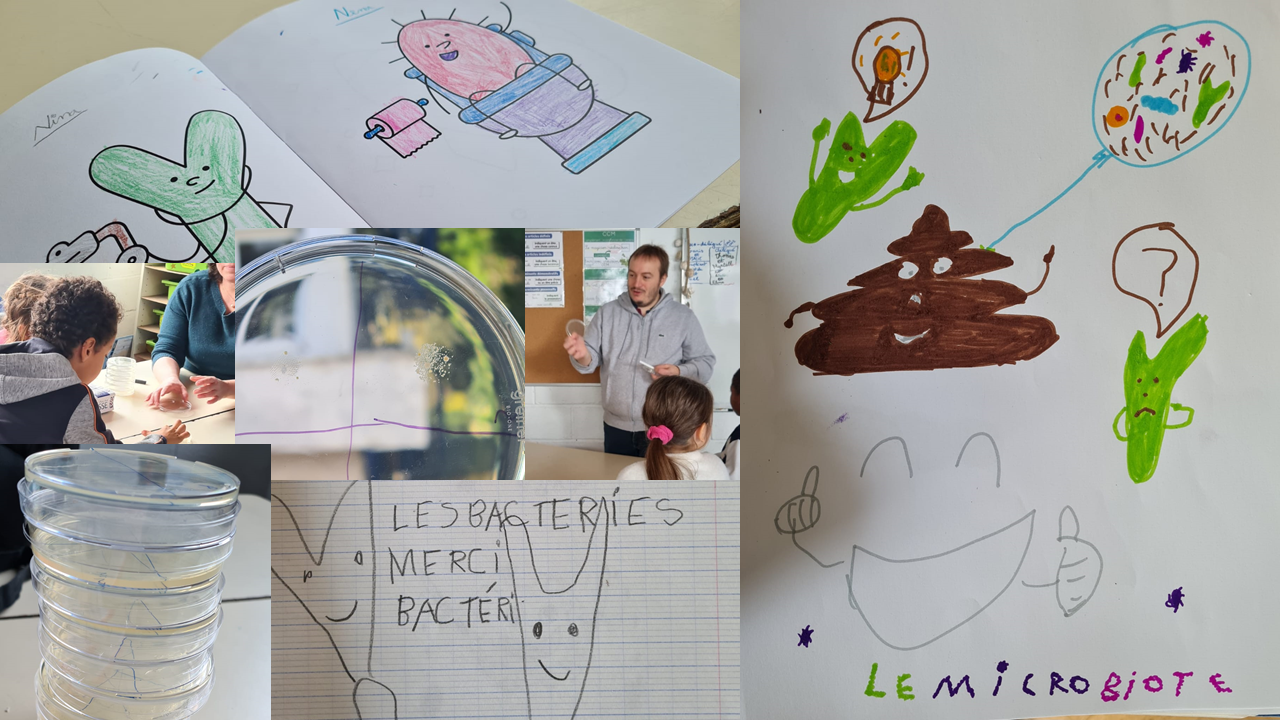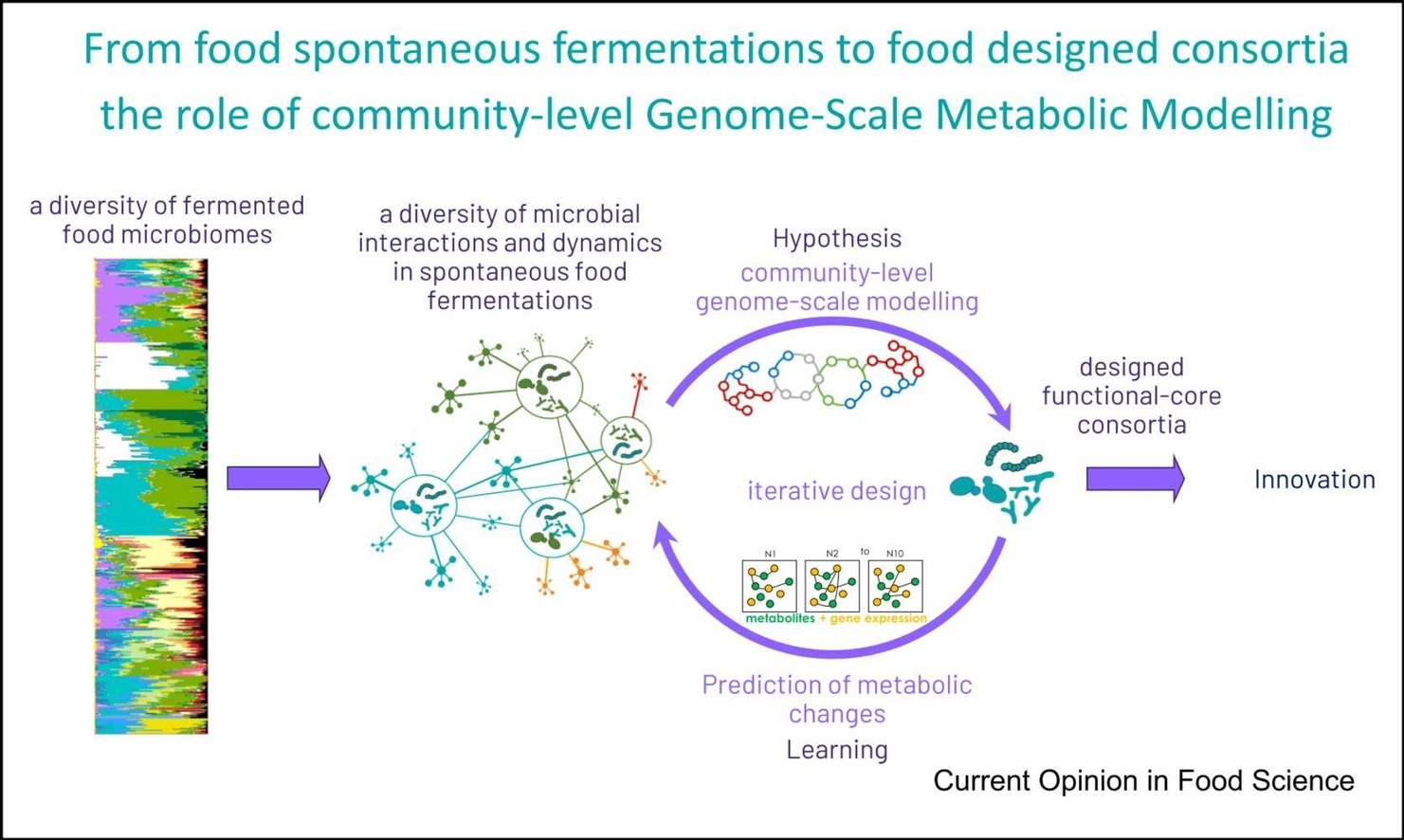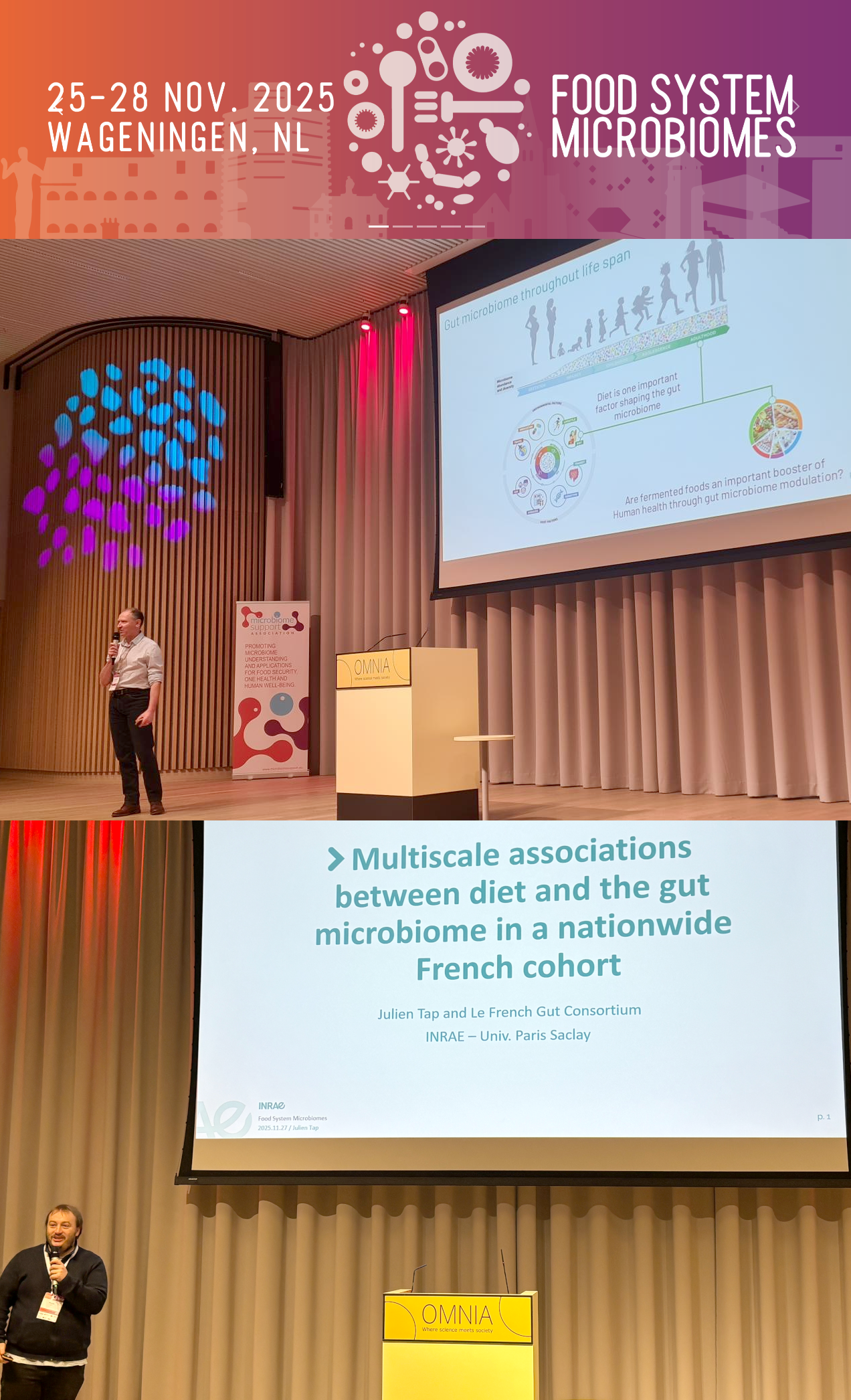Published: Apr 2, 2024 by FME Lab
In a unique venture at a primary school in the southern suburbs of the Paris region, the Food Microbial Ecology Team and the PhylHom team united to teach microbiology, fermented foods, and the gut microbiome to curious young minds. In a vibrant classroom, 50 kids engaged in a dynamic 30-minute session, exploring the microscopic world through interactive discussions and vivid illustrations.
Post-discussion, a quiz tested their knowledge, followed by a hands-on Petri Dish Handwashing Experiment, vividly demonstrating microbes’ role in our hygiene practices. Children pressed their hands onto agar plates before and after washing them, setting the stage for a revealing observation of microbial growth.

The session culminated in creative expression, with children illustrating and writing about their learnings. One touching note read, “Merci les bactéries !”—a testament to the impactful and engaging nature of this educational journey at the primary school.
Special thank to Anne-Sophie French Gut team and Vlad from Micalis MIMA2 for sharing coloring books and miscroscopic photos.


